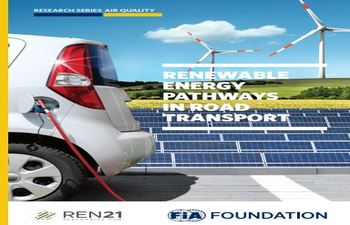Reports

A rapid and fundamental shift is required in transport to enable the decarbonisation required to meet the objectives of the Paris Climate Agreement, with actors in both the energy and transport sectors working together.
India Roadmap on Low Carbon and Sustainable Mobility
2020
Author(s): Federation of Indian Chambers of Commerce and Industry (FICCI)
This report indicates the clear thrust needed on public transportation, shifting paradigm to movement of people more than the paradigm of movement of vehicles as the effective means to reduce congestion, air pollution, and vehicle kilometres.
Security Architecture for Electric Vehicle Charging Infrastructure
2019
Author(s): ElaadNL, European Network for Cyber Security (ENCS)
This document provides a recommended security architecture for EV charging infrastructures. It gives a set of technical security measures that CPOs can use to mitigate the risks of cyber-attacks.
This 2019 report is the 14th edition of the Renewables Global Status Report (GSR), which has been produced annually since 2005 (with the exception of 2008). The GSR aims to give accurate estimates of capacity additions and totals, as well as of electricity, heat and transport fuel production in the focus year.
The year 2017 was another record-breaking one for renewable energy, characterised by the largest ever increase in renewable power capacity, falling costs, increases in investment and advances in enabling technologies.
The 2017 edition of the REN21 Renewables Global Status Report (GSR) reveals a global energy transition well under way, with record new additions of installed renewable energy capacity, rapidly falling costs, particularly for solar PV and wind power, and the decoupling of economic growth and energy-related carbon dioxide emissions for the third year running.
The year 2015 was an extraordinary one for renewable energy, with the largest global capacity additions seen to date, although challenges remain, particularly beyond the power sector.
Renewable energy continued to grow in 2014 in parallel with global energy consumption and falling oil prices. Despite rising energy use, global CO2 emissions associated with energy consumption remained stable over the course of the year while the global economy grew.
Cities are directly responsible for around two thirds of global final energy use as well as for significant indirect consumption of energy that is embodied in materials, products and other goods.
This inaugural Asia and the Pacific Renewable Energy Status Report provides a comprehensive overview of renewable energy developments in selected countries of the region.



